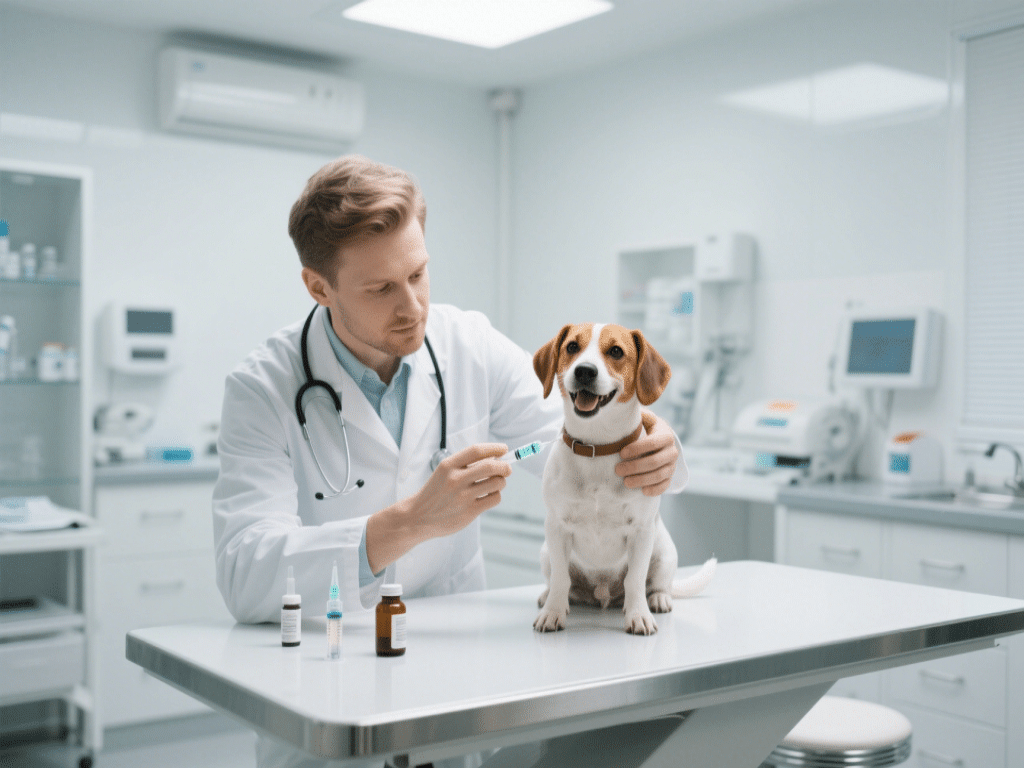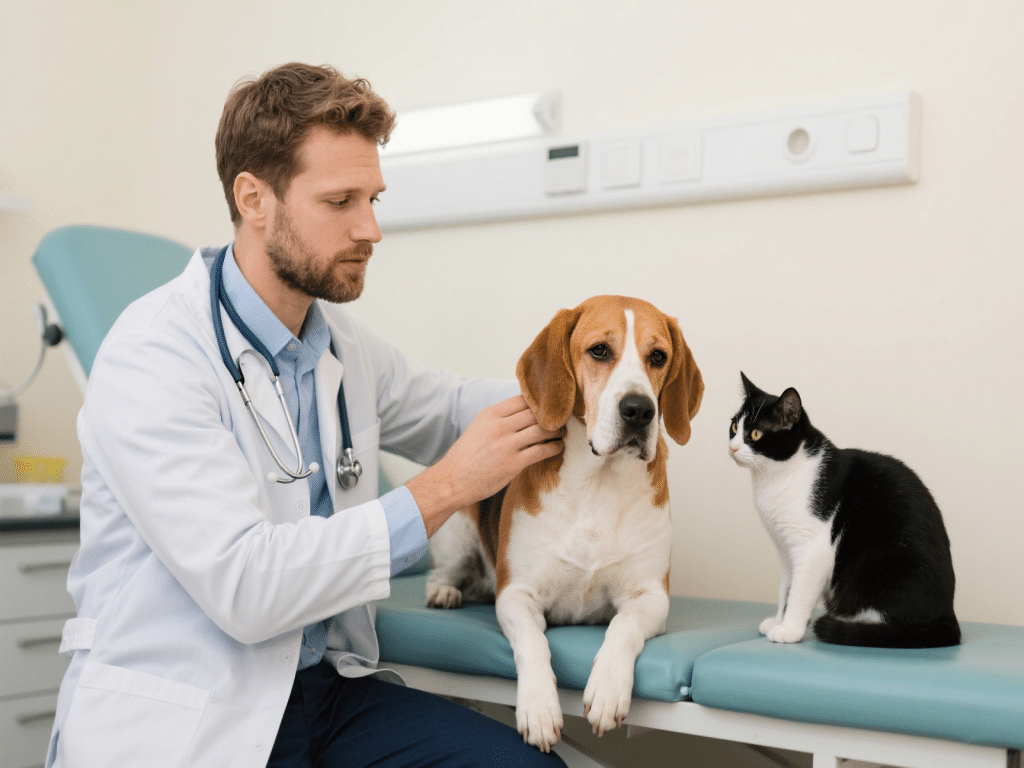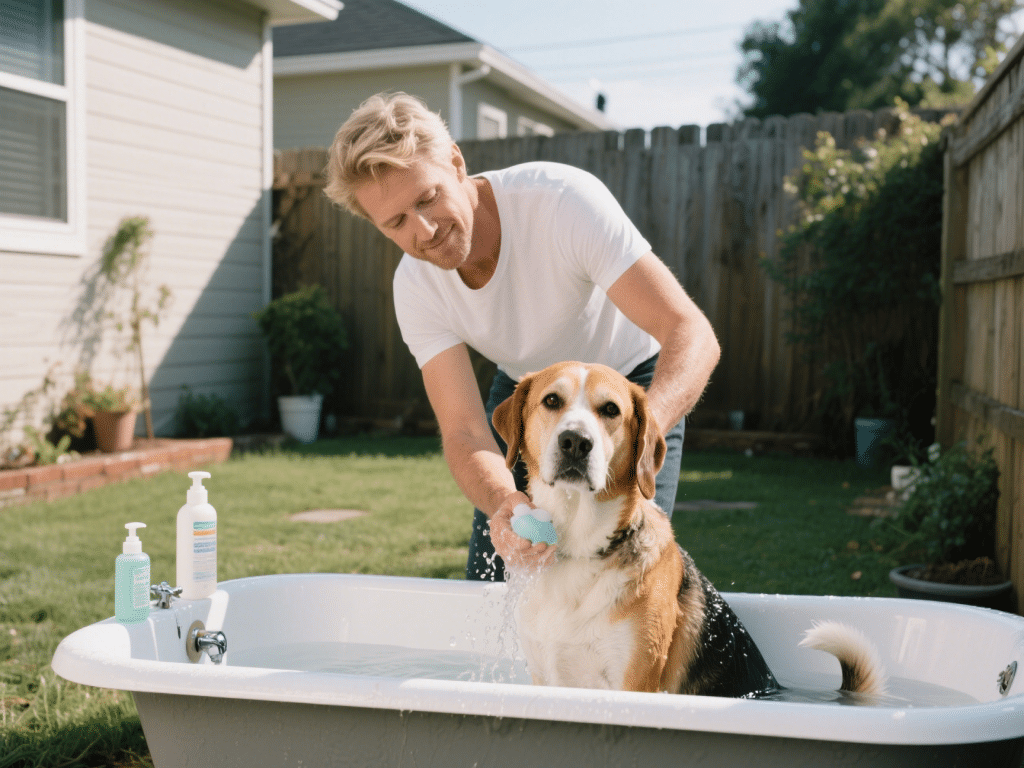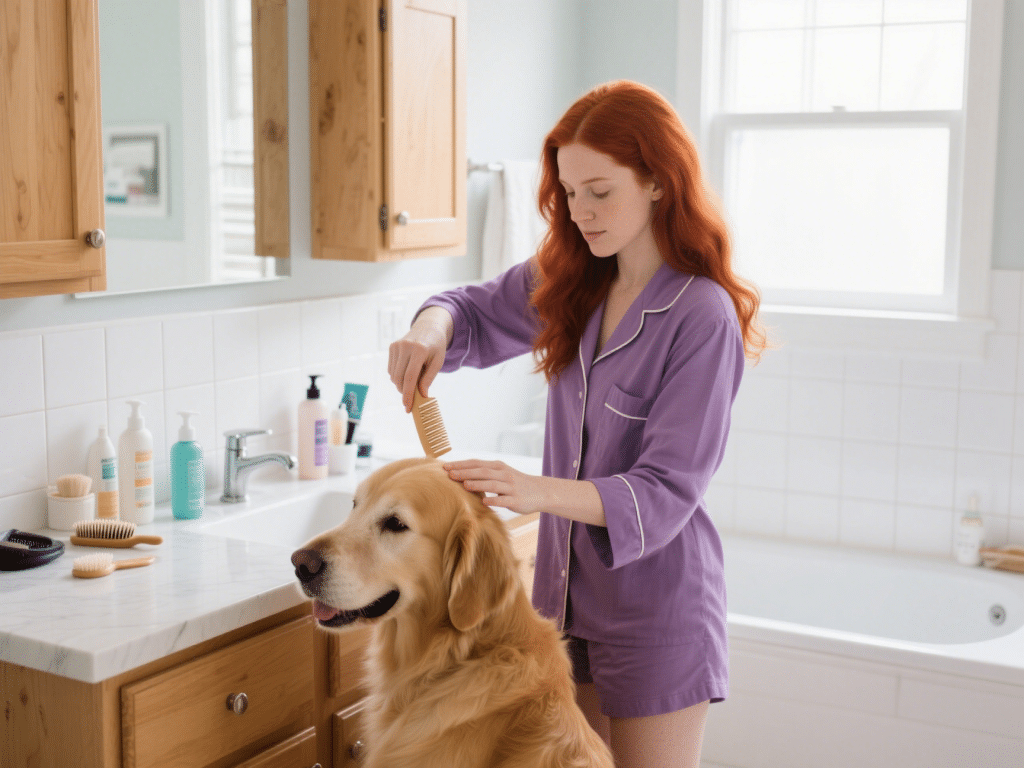Introduction
Vaccinations form the cornerstone of preventive health care for puppies. By stimulating the immune system, vaccines protect against life-threatening diseases such as parvovirus, distemper, and rabies. Understanding which vaccinations are essential—and when to administer them—ensures your puppy grows into a healthy adult dog.
1. Core vs. Non-Core Vaccines
Core Vaccines: Recommended for all puppies regardless of lifestyle.
Canine Distemper Virus (CDV): Affects respiratory, gastrointestinal, and nervous systems. High morbidity and mortality rates.
Canine Parvovirus (CPV): Severe gastroenteritis, often fatal in young puppies.
Canine Adenovirus Type 1 (CAV-1) or Type 2 (CAV-2): Protects against infectious canine hepatitis; CAV-2 in combination vaccines also covers kennel cough prophylaxis.
Rabies Virus: Legally required in many jurisdictions; fatal and zoonotic.
Non-Core Vaccines: Administered based on risk assessment.
Bordetella bronchiseptica: Bordetella protects against kennel cough; often required for boarding or doggy daycare.
Leptospira spp.: Bacterial infection transmitted via wildlife urine; recommended in areas with high leptospirosis prevalence.
Lyme Disease (Borrelia burgdorferi): Consider if you live in or travel to high–tick-prevalence regions.
2. Puppy Vaccination Schedule
| Age | Vaccine(s) | Notes |
|---|---|---|
| 6–8 Weeks | DHPP (Distemper, Hepatitis [Adenovirus], Parvovirus, Parainfluenza) – 1st dose | Initial immunity from colostrum may still be present; still necessary. |
| 10–12 Weeks | DHPP 2nd dose; Leptospirosis (optional) 1st dose | Administer Lepto 2–4 weeks after first if risk is high. |
| 14–16 Weeks | DHPP 3rd dose; Rabies (single dose) | Rabies timing aligned with local legal minimum age (often 12–16 weeks). |
| 16–18 Weeks | Bordetella (if boarding/kennel use planned) | Intranasal or injectable; boosts at 6–12 months if continuous risk. |
| 12–16 Weeks | Lyme vaccine (optional) | Two-dose series, spaced 2–4 weeks apart; for high-risk geographies. |
3. Vaccine Types & Administration
Modified Live Vaccines (MLV): Contain attenuated pathogens that replicate, eliciting robust immunity. Typically used for DHPP.
Killed (Inactivated) Vaccines: Contain inactivated pathogens; safer for immunocompromised dogs but may require more frequent boosters. Used in Leptospira, Lyme, and rabies vaccines in many formulations.
Recombinant Vaccines: Employ genetic engineering to express specific antigens (e.g., recombinant rabies vaccines), reducing adverse reactions.
4. Safety and Side Effects
Normal Reactions: Mild fever, localized swelling at injection site, decreased appetite, or lethargy lasting 24–48 hours. Monitor closely.
Rare Adverse Events: Anaphylaxis (vomiting, facial swelling, difficulty breathing) requires immediate veterinary attention. Keep your vet’s emergency contact readily available.
Vaccine-Site Sarcomas (Cats more than Dogs): Extremely rare in dogs, but monitor for any lumps that grow progressively.
5. Booster Shots & Adult Maintenance
DHPP Booster: Administer 1 year after the puppy series, then every 3 years unless titers indicate longer immunity.
Rabies Booster: Frequency depends on local regulations—typically every 1 to 3 years.
Leptospira & Bordetella: Annual boosters recommended if ongoing risk.
6. Special Considerations
Maternal Antibody Interference: Maternal antibodies protect young puppies but can interfere with vaccine efficacy. Hence, multiple DHPP doses until at least 16 weeks.
Shelter or High-Risk Environments: Initiate DHPP as early as 4 weeks and repeat every 2–3 weeks until 16–18 weeks.
Travel Requirements: Some countries/states require rabies titers or specific vaccines (e.g., canine influenza, leptospirosis). Check regulations before travel.
7. Record-Keeping & Communication
Vaccination Log: Keep a detailed record of dates, vaccine types, lot numbers, and administering veterinarian.
Discuss Risks & Benefits: Engage in open dialogue with your veterinarian about lifestyle factors (boarding, travel, wildlife exposure) to tailor non-core vaccines.
Conclusion
A well-designed vaccination protocol is foundational to your puppy’s long-term health. By understanding core and non-core vaccines, adhering to recommended schedules, and monitoring for side effects, you minimize disease risk while optimizing immune protection. Regular veterinary checkups and thorough record-keeping ensure your puppy receives timely boosters and stays safe from preventable infections.










Comments on " Essential Vaccinations for Puppies: What You Need to Know" :